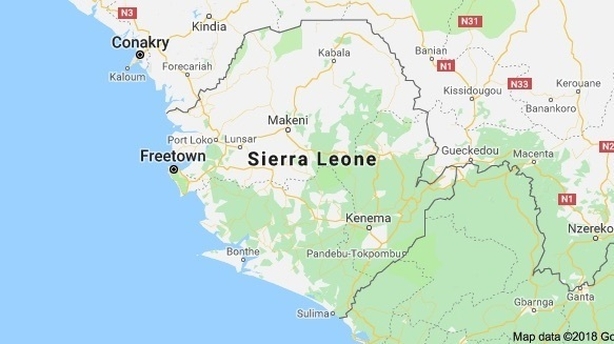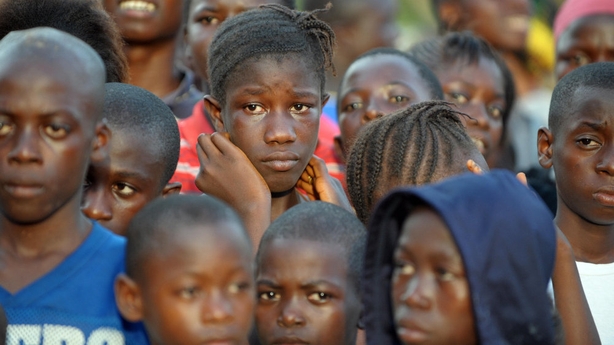In Sierra Leone, standing for election as a woman means you may face the threat of having your home destroyed. On a recent visit to the country, Trócaire's Carol Wrenn met with inspirational women who have faced down these threats.
Earlier this year, these women took the brave step of standing for the 2018 elections in Sierra Leone – most of them for the first time.
Sierra Leone is a country beginning to recover from the devastating impact of war and disease. In 2014/2015, Sierra Leone was affected by an outbreak of the deadly Ebola virus. Over 20,000 people were infected in West Africa, over half of whom were in Sierra Leone.

This is in a country which is still recovering from a 10-year civil war which ended in 2002. That civil war left over 50,000 people dead. Although the country has shown promising signs of recovery, many challenges remain. These include poor infrastructure and high levels of poverty. In particular, women face significant challenges in the country, including violence, high maternal mortality rates, and poor levels of education compared to men.
We need your consent to load this rte-player contentWe use rte-player to manage extra content that can set cookies on your device and collect data about your activity. Please review their details and accept them to load the content.Manage Preferences
Marian Finucane speaks to former Ambassador to Sierra Leone Sinead Walshe in 2018
The women I met spoke to me about the inspiring journeys they have taken, and the challenges that women face in their communities.
They want to improve the conditions facing women in the community. This has included calling for wells to be built in their villages so that women would not have to spend hours collecting water. New wells would also mean safer water to drink, and as a result their children would not be as sick so often.
The women told me of their deep concern over he rise of teenage pregnancies in their communities and of the abuse and violence that women face. They also discussed the many businesses in the area that women wanted to start. One woman, Councillor Aminata, said she was able to help some women who needed to access credit, by acting as guarantor in the bank for them.
"Women in Sierra Leone are not permitted to own land, and as a result find it very difficult to find enough money to lift themselves out of poverty."
Sierra Leone is ranked 144 out of 192 in the world for the lowest percentages of elected female politicians. The 2018 elections saw 12% of the seats in the national parliament claimed by women – 18 women were elected, a slight increase on the 15 elected in the previous election of 2012. However, given the total number of seats in parliament increased, the percentage remains the same at 12%.
It was inspiring to meet women who have taken a stand in an attempt to improve the lives of women throughout their communities. They underwent training on public speaking, campaigning, lobbying and advocacy.

As we discussed the reasons why these women wanted to stand for election, some of them spoke of the severe intimidation they faced. This included threats that their family homes would be destroyed, or that they would be evicted from their rented accommodation.
They also spoke of the harassment and humiliation they faced in public. One shocking example was when groups of young men emptied wheelbarrows full of excrement at their front doors. Men who stood for election never had to face this form of intimidation.
As these women told their stories, the camaraderie between them was palpable. This was despite some of them aligning themselves with different political parties. Not all the women I spoke with were successful in their election campaign, but together as a group there was a sense of strength and hope amongst them. Many of those who were unsuccessful are already thinking about their future opportunities.
"These women are ready to stand up for what they believe in. They are ready to challenge the unequal power structures they witness on a daily basis."
One young woman told me "we are tired of dancing and clapping for men". These women are ready to stand up for what they believe in. They are ready to challenge the unequal power structures they witness on a daily basis.
The women who have been elected have a long road ahead of them. They are likely to have to prove their worth in politics to a much greater extent than their male counterparts.
Alongside their sisters who attempted to stand this time around, they can encourage other women to rise up and demand their rights. Hopefully together with supportive men in their communities they will realise their dream of a stronger, healthier Sierra Leone.
Carol Wrenn is Trócaire's Women's Empowerment Advisor.
The views expressed here are those of the author and do not represent or reflect the views of RTÉ.



